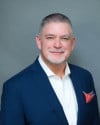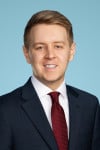How U.S. Courts Have Dealt with COVID-19 Business Interruption Insurance Cases Involving Pro Sports Teams

At the beginning of 2020 there were two big questions in American sports: could Lebron James and Anthony Davis revive the Lakers, and was Patrick Mahomes the best quarterback in the National Football League? Then everything changed. On January 9, 2020, the World Health Organization (WHO) reported a mysterious new coronavirus discovered in Wuhan, China[1]. On January 21, 2020, the Centers for Disease Control and Prevention in Atlanta (the CDC) confirmed the first case of the virus, later to be designated COVID-19, in the United States[2]. A few days later, on January 31, the U.S. declared a public health emergency[3]. Soon thereafter, health experts confirmed that enough coronavirus cases were present in the U.S. such that state, county, and local health departments began issuing social distancing mandates and ordering lockdowns of businesses across the country.
For American sports leagues and teams, March 11, 2020, was the day when everything came to a screeching halt. At the time, the total number of confirmed COVID-19 cases in the United States was less than 650. Just before 12:30 p.m. on March 11, the WHO officially declared COVID-19 a global pandemic.[4]Just before 2:00 p.m. the mayor of San Francisco banned gatherings over 1,000 people and because of that, the Golden State Warriors of the National Basketball Association (NBA) announced that they would play their game the following day but it would be without fans in attendance.[5] At 7:00 p.m., the Big East Conference announced that, like the Warriors, the conference basketball tournament would continue the following day but without any fans at Madison Square Garden.[6] Around 8:30 p.m., just prior to the start of the NBA game in Oklahoma City between the Thunder and the Utah Jazz, game officials told the coaches that the game was being cancelled because Jazz center Rudy Gobert had tested positive for COVID-19.[7]An hour later, news first broke that the NBA would cancel the remainder of the 2019-20 season for the foreseeable future.[8]
The next day, on March 12, 2020, the other impacted major American sports leagues followed suit.[9]On that day, the National Hockey League (NHL) announced that it would “pause” the 2019-20 season due to the coronavirus and Major League Baseball (MLB) announced the cancellation of the remainder of spring training and a two week delay to the start of the regular season.[10] Winter and spring college sporting events across the country also came to a standstill on March 12, when the NCAA canceled the men’s and women’s basketball championship tournaments and suspended all other sporting events[11]. Several months later, many new words and phrases emerged out of the pandemic, but there was one new phrase that was uniquely sports-related: “the bubble.”
The impact of the pandemic and the ensuing governmental shutdown orders on businesses was extreme and the sports world was no exception. In mid-March, Forbes calculated the potential loss to sports teams would be at least $5 billion.[12] The following month, one economist predicted that at least $12 billion in revenue would be lost due to sports shutdowns caused by the virus, with the potential that losses could be twice that depending on how long the shutdowns lasted and whether live events returned in the fall.[13] As the World Economic Forum put it: “no games mean no TV deals and no matchday income; no income means no clubs.”[14] Thus, the “bubble” was born.
The NBA and NHL quickly pivoted to a “bubble” model where teams across the leagues isolated themselves from the general public in a single location (two cities for hockey) to prevent the spread of the virus, with the NFL later creating a less-restrictive model for its teams.[15] Despite the leagues’ corrections, the loss of revenues could hardly be described as a routine down-year. Just shy of one year after lockdowns went into effect, Forbes reported that the combined losses from the NFL, NBA, MLB, and NHL reached over $13 billion, and resulted in the value of some professional sports teams either dropping or showing the smallest increases in a decade.[16] And those losses do not include the significant lost revenue stream sustained by those sports teams that also own their venues because of canceled concerts, conventions, and other events.
Fortunately, sports leagues and teams, as well as other businesses around the country, paid insurance premiums for “all-risk” property insurance policies, many of which included significant coverage for business interruption losses caused by any risk of loss that was not specifically excluded by the policy, to ensure such drastic events would be manageable. However, the insurers saw it differently.
This article examines:
To continue reading or watching login or register here
Already a member? Sign in
Get access to all of the expert analysis and commentary at LawInSport including articles, webinars, conference videos and podcast transcripts. Find out more here.
- Tags: American Football | Baseball | Basketball | Covid-19 | Dispute Resolution | Hockey | Insurance | Major League Baseball (MLB) | National Basketball Association (NBA) | National Football League (NFL) | National Hockey League (NHL) | United States
Related Articles
- The pitfalls that face a sportsperson or a sports organisation in arranging and claiming under insurance cover
- Key insurance policies in sport and the role of the lawyer
- How player insurance works in Rugby Union and the modern challenges facing insurers
- Playing football is simply not cricket - issues with athletes’ insurance against training and warm-up injuries following the Rory Burns case
- COVID-19: can sporting event organisers claim under their cancellation insurance?
Written by
Richard Giller
Richard Giller is a partner in the Los Angeles office of Greenspoon Marder LLP and is the head of the firm’s Insurance Recovery and Counseling practice. He concentrates his practice on recovering insurance benefits from recalcitrant insurance companies on behalf of his institutional and individual clients. Mr. Giller has represented policyholders all over the U.S. and has successfully secured hundreds of millions of dollars in defense costs, settlements, and indemnity payments on behalf of his clients. Besides advising Fortune 500 clients, Mr. Giller represents collegiate and professional athletes, professional sports teams, and entertainers in securing payouts under various insurance products including permanent total disability (PTD), temporary total disability (TTD), and loss-of-value (LOV) insurance claims. Mr. Giller has also successfully obtained recoveries under event cancellation insurance, cast and crew insurance, and other entertainment-related insurance policies and coverages.
Kirk Gandy
Kirk Gandy is an attorney based in Washington, DC who focuses on insurance recovery matters and commercial litigation. Prior to entering private practice, Kirk served as a law clerk to the Honorable Joseph R. Goodwin of the U.S. District Court for the Southern District of West Virginia, and as a judicial intern in the Southern District of Illinois and the Western District of Missouri.





